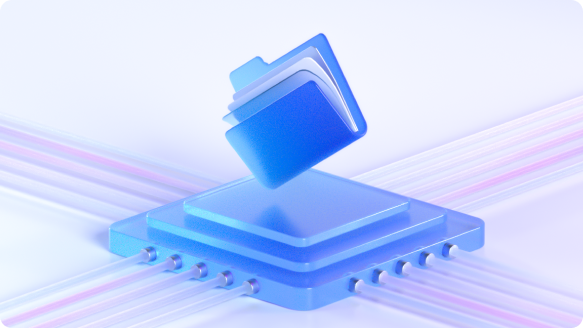11 Fixes for Windows Stop Code Thread Stuck in Device Driver
Blue Screen of Death (BSOD) is a terrifying sight for every Windows user. It is a clear indication that something is wrong with your PC and you need to take effective measures to fix the issue quickly.
BSOD is usually accompanied by different types of errors and stop code thread stuck in the device driver is one of them. The error usually occurs when you've installed new hardware equipment on your PC. Although, like any other BSOD error, several reasons can trigger the thread stuck in a device driver error.
So, in this guide, we've compiled a list of 11 quick fixes that'll help you troubleshoot the error and say a permanent goodbye to BSOD.
Part 1: How to Fix the stop code thread stuck in device driver Error
Fix 1: Check your hardware
Believe it or not, but faulty hardware on your system will trigger the thread stuck in device driver error. Often, when users replace any hardware component, be it a hard drive, RAM, or a Graphics Card, they don't make firm connections.
So, if you've recently added new hardware to your PC, make sure to check if everything's connected firmly. For instance, if you've replaced the hard drive, take a look at the SATA cables and ensure they're connected properly.
In case, every connection is firm, try replacing the hardware component with the older one. This will help you identify whether there's an issue with your new hardware equipment and if it needs to be replaced or not.
Fix 2: Reset Hardware Acceleration
For many users, resetting the video card's hardware acceleration helped in fixing the Windows stop code thread stuck in device driver error. However, this would degrade the performance of the video card and you may not give you the desired functionality.
Here's how you can do it.
Step 1: Right-click on your Desktop and tap "Nvidia Control Panel".

Step 2: In the left menu bar, click on "Set PhysX configuration".
Step 3: Under the "Select PhysX Processor", click the drop-down menu and select CPU.

Step 4: This will disable Nvidia GPU acceleration on your system. Now, simply restart your PC and see if the error is gone or not.
Fix 3: Install the latest Windows updates
Outdated Windows is one of the most common reasons for users to encounter different BSOD errors. If it's been a while since you updated your Windows, make sure to download and install pending updates.
Follow these instructions:
Step 1: Go to Windows Settings and tap on "Update & Security".

Step 2: Click the "Check for Updates" button to see if you have any pending updates.

Step 3: Install the pending updates and restart your PC.
Fix 4: Update your drivers
Among all the reasons, outdated video card drivers are the most common cause of stop code thread stuck in the driver. In this situation, the most effective fix would be to update the video card drivers. Here is how!
Step 1: Press "Windows + X" and click on "Device Manager".

Step 2: Expand the "Display Driver" tab and right-click the video card you're using on your system. Now, choose the "Update Drivers" option.

Step 3: Click on "Search Automatically for Updated Driver Software" and let your system automatically look for the most suitable drivers.

Fix 5: Run the BSOD Troubleshooter
BSOD Troubleshooter is a Windows 10 built-in feature that'll allow you to fix different BSOD errors including the "stop code thread stuck in device driver". In case none of the above-mentioned methods work, you can run the BSOD troubleshooter and it'll most likely fix the error.
Step 1: Open "Windows Settings" and click on "Update & Security".
Step 2: Click on the "Troubleshoot" tab in the left sidebar.
Step 3: Choose the Blue Screen and tap the "Run the Troubleshooter" button.

Step 4: Follow the on-screen instructions to initiate the troubleshot and let it automatically fix the error.
Fix 6: Run the SFC scan
SFC scan is a built-in Windows utility that's extremely helpful in fixing different BSOD errors. If the error is caused due to a corrupt system file, running the SFC scan will help you fix the error immediately.
To put it in simple words, the SFC scan will identify all the damaged system files and repair them automatically. It means if a corrupt system file is triggering the error, the SFC scan will help you fix it.
Here's how you can use "SFC Scan" to fix stop code thread_stuck_in_device_driver.
Step 1: Launch Command Prompt as Administrator on your PC.
Step 2: Now, execute sfc/ scannow (as shown in the image below).

Step 3: The utility will start looking for damaged system files and replace them with the recovery images which are stored locally. Be patient as this process usually takes a couple of minutes to complete.
Fix 7: Run DISM
DISM (Deployment Image Servicing and Management) is yet another built-in system utility that's specifically designed to repair system images such as recovery images (used by SFC to replace corrupt system files).
DISM can be used in situations when SFC fails to replace the damaged files with recovery images. In this case, DISM will download the recovery images online and use them to replace corrupt system files.
Step 1: Launch Command Prompt as Administrator.
Step 2: Execute the following command to run the "DISM" utility.
DISM /Online /Cleanup-Image /RestoreHealth

Step 3: Again, the scan can take several minutes to complete. Once the scan completes, restart your PC and see if you're again welcomed by the BSOD error or not.
Fix 8: Remove your antivirus and problematic applications
Even though an Antivirus software protects your system from potential malware, it can also interrupt the normal functionality of your PC. Over the years, many users have reported that uninstalling the Antivirus program helped them fix the Windows stop code thread stuck in the device driver. In many cases, the error can also be triggered due to a faulty third-party application.
So, if you're also using a third-party Antivirus program or have recently installed an application, make sure to uninstall it to see if the issue persists or not.
Here's how to remove a third-party application from your system.
Step 1: Go to "Windows Settings" and select "System".

Step 2: Click "Apps & Features" in the left menu bar.
Step 3: Choose the Antivirus software or the particular third-party app and click "Uninstall" to remove the application.

Once the application is uninstalled, simply restart your PC and see if the error is gone or not.
Fix 9: Update your BIOS
Upgrading the BIOS is one of the solutions, that is most likely to help you fix the BSOD error. However, it's an extremely critical process and one small blunder can cause damage to your entire system. If you're planning to update the BIOS, make sure to consult an expert and let him/her do the job.
Fix 10: Remove overclock settings
While an overclocked CPU can help you boost your system's performance, it can also trigger the Windows stop code thread stuck in device driver error. In case you've intentionally overclocked your CPU for better performance, make sure to reset it to the default clock speed. Even though this might not provide the desired performance, you won't face the frequent BSOD crash anymore.
Fix 11: Perform System Restore
If you've recently started to witness the BSOD error on your system, you can also use System Restore to fix it. Performing a system restore will help you restore your PC to a stable version in the past.
Part 2: How to Recover Unsaved Data due to stop code thread stuck in device driver?
When you encounter the Blue Screen of Death, there's a huge chance that you might also experience data loss. Several BSOD errors including the "thread stuck in device driver error" can delete valuable data from your system.
If you've also lost any valuable files due to the BSOD crash, we recommend usingWondershare RecoverIt. It's a feature-rich tool exclusively designed to help Windows users retrieve any lost data.
The tool will help you perform a deep scan to find every deleted file and restore it with one click. Let's walk you through the steps to use Wondershare RecoverIt and restore deleted files on your system.
Step 1: Launch RecoverIt and Scan Location
Install the software on your system and double-tap the icon to launch it.
Step 2: Select a Location
Now, choose a location on your drive from where the data is deleted.

Step 3: Scan the Location
Once you've chosen a particular location, RecoverIt will initiate the scanning process. The tool will fetch-out every deleted file on your system and that's why the process can take a while to complete. You can also tap the "Pause" button to stop the scanning process midway.

Step 4: Check Preview
Recoverit gives you the liberty to preview a file before restoring it. Tap "Preview" to identify if the file is working fine or not.

Step 5: Restore the File
If the preview looks perfect, tap the "Recover" button and choose a particular destination to store the recovered files.
That's it; the recovered files will be moved to the chosen destination folder.
The Bottom Line
BSOD errors like stop code thread stuck in the device driver can cause unexpected crashes and also damage your system's performance. It is important to take effective measures at the earliest so that the error can be fixed instantly. The above-mentioned tricks will help you get rid of the Blue Screen of Death, allowing you to continue your browsing without any interruptions.
Computer Troubleshooting
- Win System Crash
- Windows Tips
- Computer Problems
- Blue Screen Errors

















 ChatGPT
ChatGPT
 Perplexity
Perplexity
 Google AI Mode
Google AI Mode
 Grok
Grok























David Darlington
staff Editor